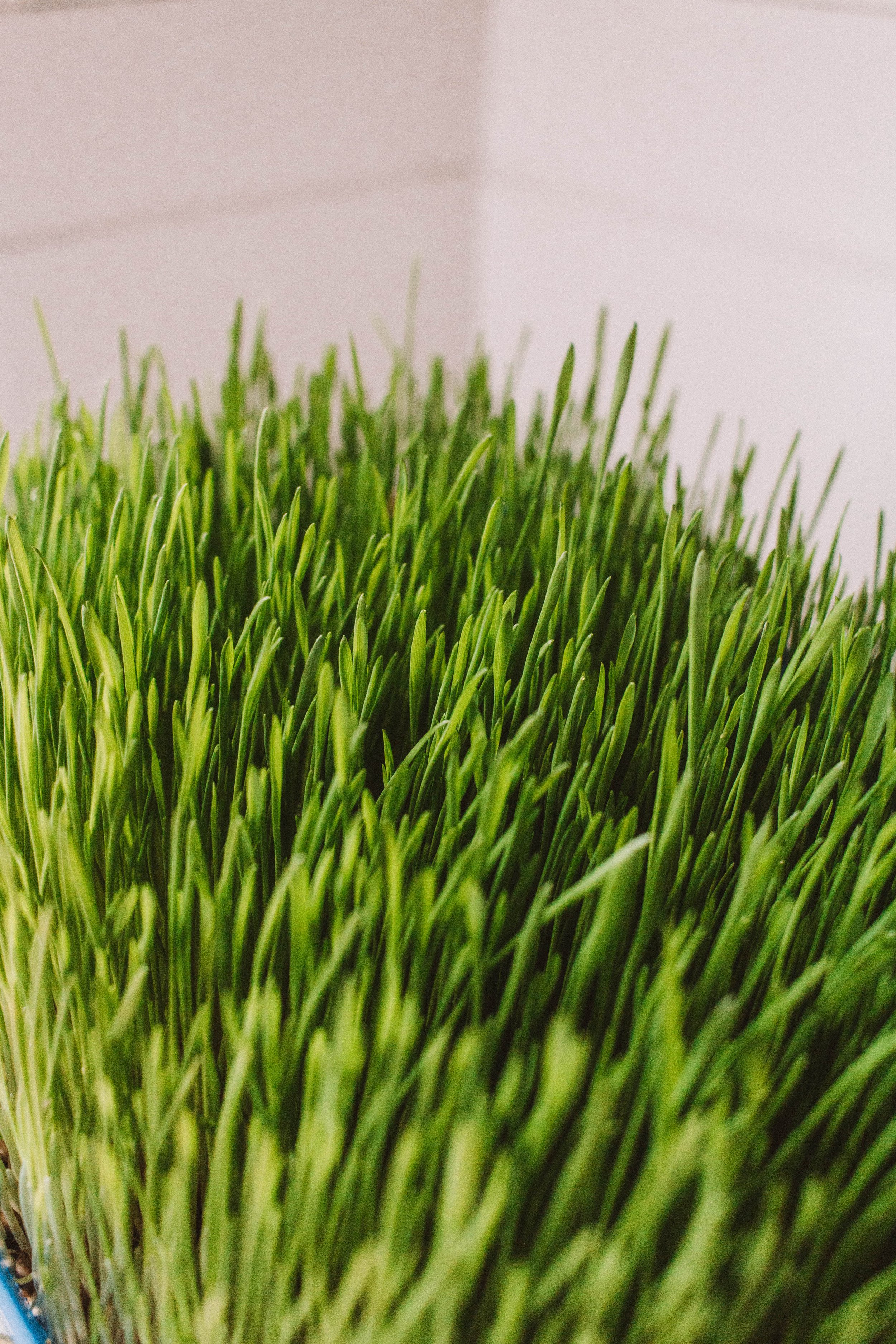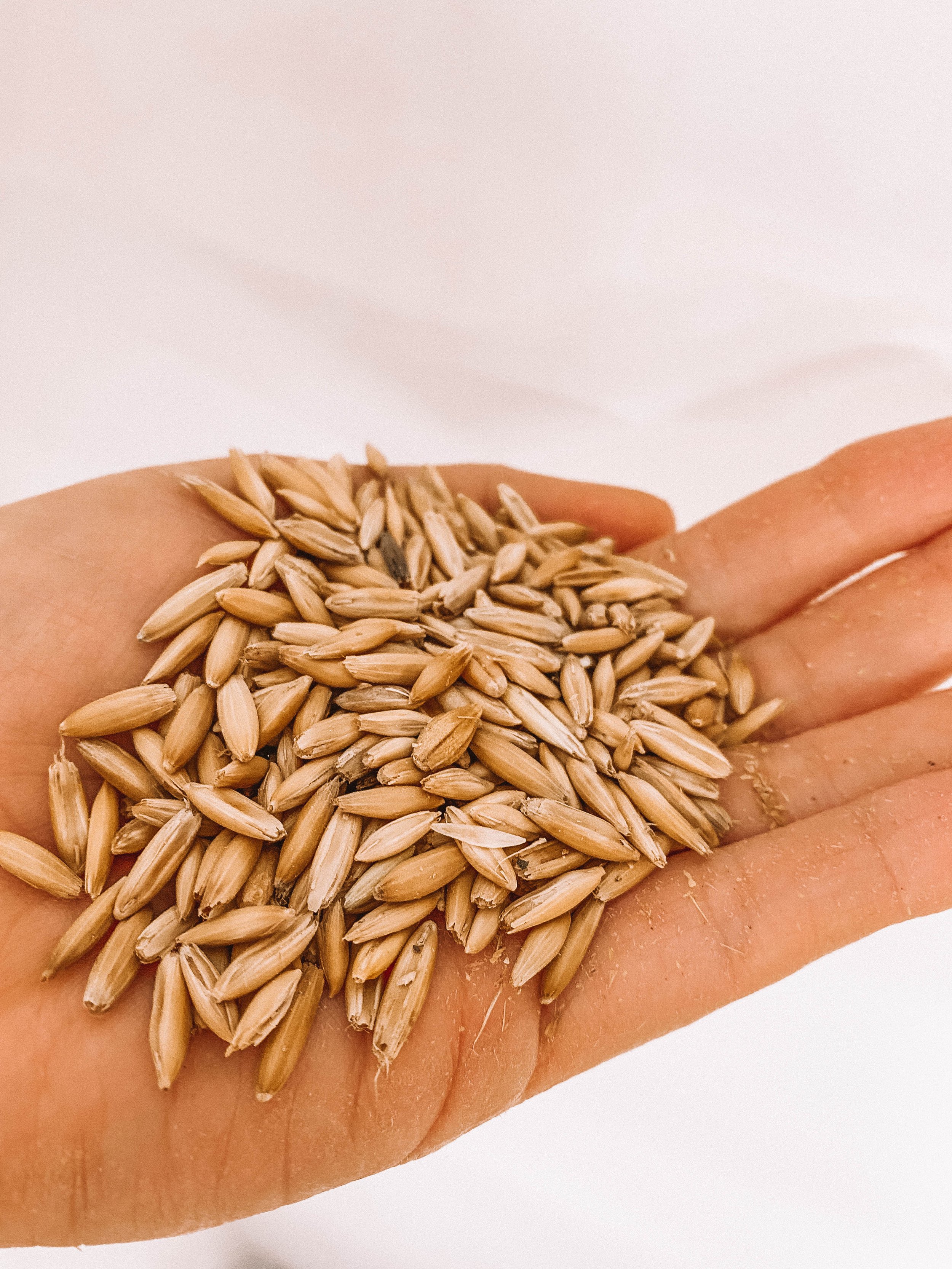A DIY Treat To Feed Chickens In Winter
**This blog post contains affiliate links. if you purchase an item through one of our links below, we receive a small portion of the sale at no additional cost to you. your purchases help us tremendously and help us to keep creating free content for you!**
It's the middle of winter, and everything is dead. Well almost. If it's alive, the chickens have eaten it. We are still working on making the chicken coop and run the most entertaining place it can be for them, but we felt like they still need something more. Then we discovered fodder.
Fodder is something used on farms and homesteads all around to feed livestock. It can be made at home from many different things- wheat, peas, barley, oats, etc. It grows fast and provides a very cheap treat for your farm animals. I first searched high and low for a huge bag of barley, but in the end our supply store only had oats, so that became our choice of grain! The 50 lb. bag cost about $15.
Now fodder is not supposed to replace the entire diet of your chickens. We are growing it for more of a treat and to offset a little bit of the cost of food. Mostly it gives the chickens something to do and be excited about, especially in the colder months when everything is dead.
I've had some trial and error. When I read about the process of making fodder online, it seems like it's easy and fool-proof. No one really talks about the ways it can go wrong. But on my first try (while following someone's complete instructions) only about 1/4 of the grains sprouted and I ended up with a lot of wet grain and a little bit of sprouts. The chickens enjoyed it anyway, but it didn't provide as much food/treats as I would have liked. So after numerous YouTube videos watched and blog posts read, I believe I figured out the best way to grow fodder in your home, *without* an automatic watering system. Because that is also a thing....
You may read this post and think, this is more work than I want to put in. And although you do have to tend to the project every day, you only spend about 3 minutes per day doing anything. So let's talk about everything you need to do, and what supplies you need to do it.
You will need:
- A large soaking jar
- Grains of your choice
- Kitchen Towel
- Bowl
- Strainer
- Tray with holes
- Tray without holes
If you want to buy a system that’s already set up and pretty inexpensive you can buy either of these options:
Soak the grains. For a long time! I read to soak the grains overnight. This is not long enough. Just go ahead and soak them for 24 hours. I put about 2 cups in a giant mason jar and filled it up with water. I did end up having to add a little more water as the seeds started absorbing it.
Incubate the grains. Once the seeds have been soaking for 24 hours, strain the water out and give the grains a good rinse. Place a clean kitchen towel in a bowl and pour the grains on top. Then wrap the towel over the seeds to completely cover them. Leave them for at least 24 hours. I found that 48 hours for the oats was best.
At this point, your grains should be sprouted very nicely. Place the grains in an even layer in your tray with holes. Rinse the grains with water. I do this in my sink. Just spray with water and let it drain out. Once the water has mostly drained out, place the grain tray on top of the tray without holes. Use the kitchen towel (or anything you'd like, really) to roll up and prop up one end of the grain tray. This will allow any residual water to leak out instead of sitting with the grains. We do not want any mold to grow!
I rinse my tray twice a day. Once in the morning, and once in the evening. Basically when I wake up and before I go to sleep. Some people rinse 3 or 4 times a day, and that is definitely an option if you have the time. But I have found that the sprouts still grow very quickly with a twice a day watering.
Once your sprouts reach about 4 inches, you can give the entire tray to your chickens! Ours will spend a few days eating the 9x12 tray. One day soon I hope to grow multiple trays at a time so they can have a little bit of sprouts every day, even through summer. Especially on the days when we can't let them free range.





